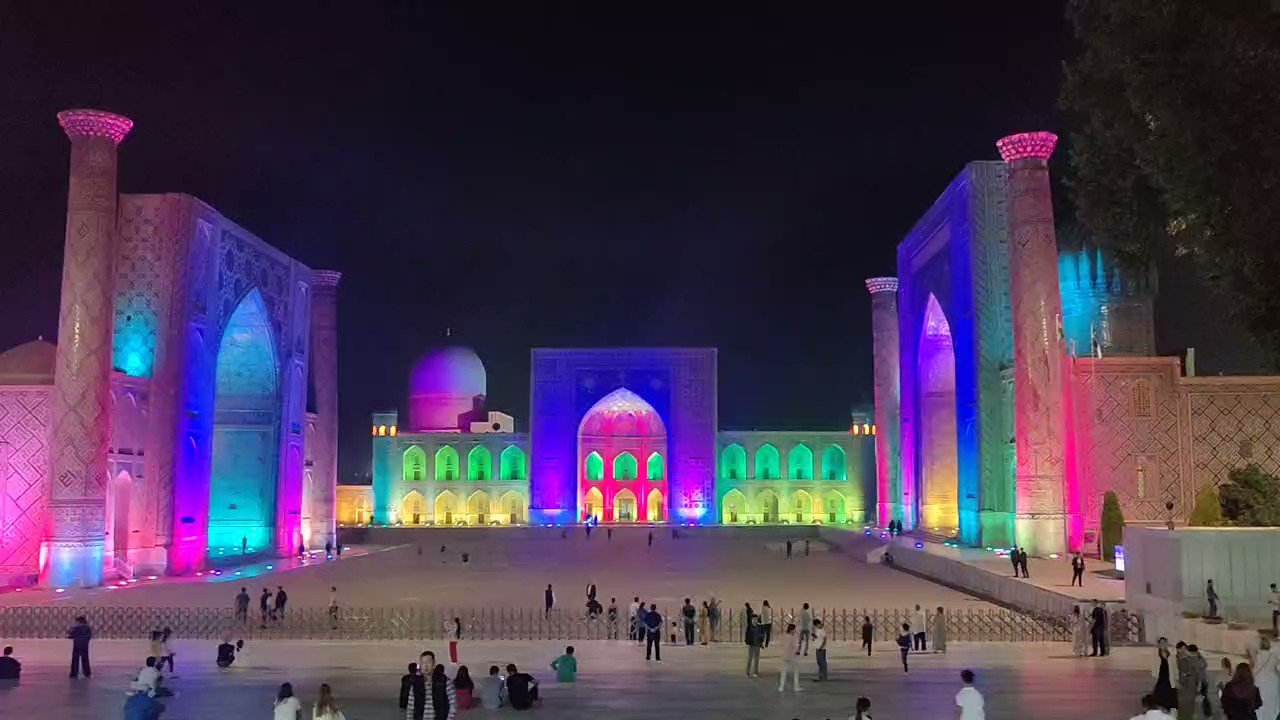With less than two weeks until a landmark constitutional referendum that will alter expectations for political reform throughout Central Asia, international interest has peaked with a major conference that took place on 17-18 April in Tashkent, featuring former Polish President Alexander Kwasniewski, former Slovenian President Borut Pahor, a UK delegation featuring Lord James Wharton as well as MPs Sir Gavin Williamson and Alun Cairns, and European Conservatives’ Secretary General Tom Van Dijck, among other dignitaries from around the globe.
The conference, entitled “The Essence and Significance of Constitutional Reform”, featured panel discussions on Human Rights, Economy, Separation of Powers, Civil Society, and International Relations.
“As world developments change, so must parliaments and laws. I welcome the number of norms aimed at increasing the welfare of the population in the updated Constitution. The rule of law, travel, housing, and other norms aimed at improving people’s lives serve to significantly increase the standard of living of the population in Uzbekistan,” the UK’s Lord Wharton said.
Former President of Poland, Alexander Kwasniewski, added, “A constitution is a pillar of a rule-of-law state, it must therefore be stable, in order to create a civil society that is aware of and educated about the constitution. I am confident that Uzbekistan can achieve these standards with the constitution as the 1st step, and I am sure that the people will vote to approve the constitutional reforms in the April 30 referendum.”
Former President of Slovenia, Borut Pahor, underlined, “Adapting constitutional norms is one of the most difficult but important steps for any country. I believe that Uzbekistan is at a major turning point. With the constitutional referendum it has the potential to become the most modern, democratic, and politically stable country in the region.”
British MP Sir Gavin Williamson noted that 800 years ago the signing of the Magna Carta – the great charter of freedoms – in England, which aimed to establish limitations on executive power and establish law as a power in itself, was not the end of reforms in England, but the start. He urged Uzbekistan to continuously question itself as to how it can go further and do better, to strengthen standards, guarantees, freedoms and rights.”
Tom Van Dijck, Secretary-General of the European Conservatives at the Parliamentary Assembly of the Council of Europe (PACE), recognised the constitution as Uzbekistan “leaving the communist era behind for good and welcoming a new social contract between people and government.”
Another MP from the UK, Alun Cairns, highlighted the positive impact on business, investment and economic growth. “Cultivating a positive business and investment climate requires some of the same measures as building the rule of law. In particular, clear and consistently applied laws and regulations – including taxes – alongside political stability and predictability. I welcome this constitution’s clear input from the business and investment communities.”
On the heels of the conference, town hall meetings will continue nationwide. Pre-referendum activity has also taken to the airwaves and steered social media dialogue, resulting in an impressive online footprint: 30 million messages have been received on public outreach regarding the referendum, including more than 220,000 constitutional proposals. The draft constitution has been downloaded 5 million times. Young volunteers have added to the buzz, having been enlisted to distribute millions of printed materials advocating for participation in the referendum.
Political parties and NGOs also have mobilized their members and supporters to engage in a voter education drive, compiling a list of observers at polling stations for the April 30 referendum, as well as developing a curriculum and schedule of training for them.
Source : CISION










